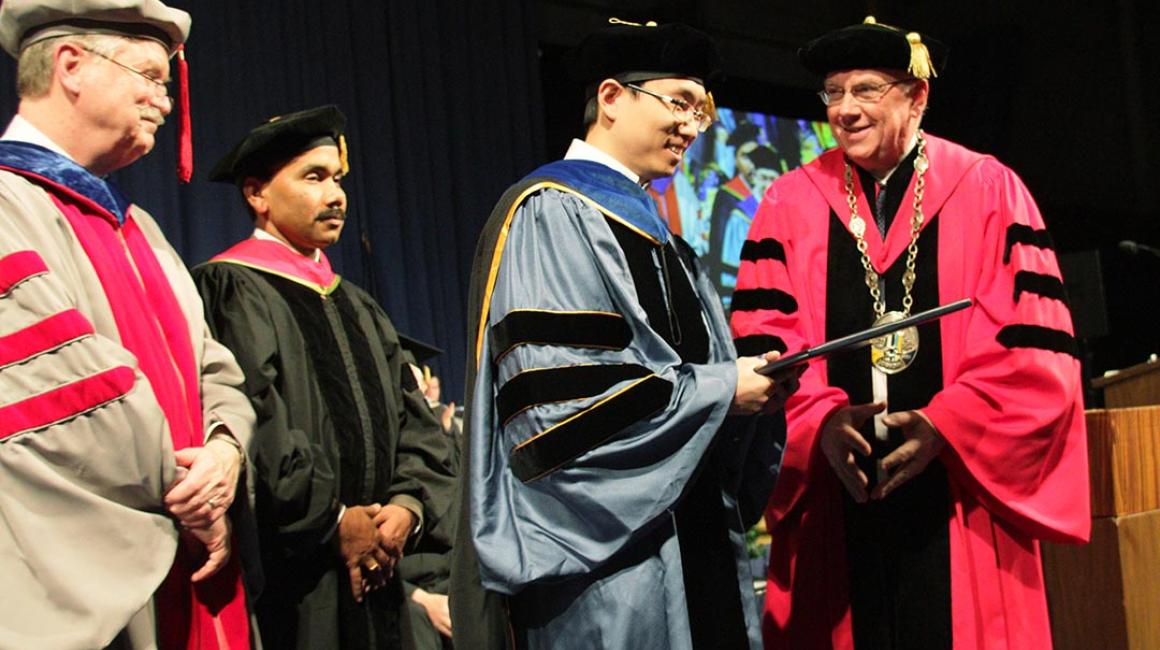
The first time Associate Professor of Electrical and Computer Engineering Xuan Zhou heard of the University of Michigan-Dearborn he was a 25-year-old first-year Ph.D. student at Xi’an Jiaotong University in China. UM-Dearborn Industrial and Manufacturing Systems Engineering Professor Yubao Chen, an alum of Xi’an Jiaotong, and then-Provost Robert Simpson had traveled to Xi'an to lay the groundwork for a new 3+2 undergraduate-master’s program that would give Chinese engineering students a fast-track to an American graduate degree. Zhou already had a master’s in materials science in hand, so restarting his undergraduate career didn’t make much sense for him. But when he heard Simpson and Chen’s presentation on the college’s other master’s options, Zhou felt tempted by an unexpected opportunity to change course. “At that time, I was feeling a little confused about my future, and I was really interested in automotive systems engineering, because there were all these different concentrations, including for materials, which is what my background was in,” Zhou remembers. “When you grow up in China, it's pretty exciting to think about studying in the U.S., because that’s where the most advanced technologies were. So I was thinking maybe this was my opportunity to do that, and then I’d probably come back to China and start my career.”
Zhou decided to take the leap. He applied for the automotive systems engineering master’s program at UM-Dearborn, and when he was accepted, he dropped his Ph.D. studies and headed for Michigan. He recalls he was the only student out of the cohort of four from Xi’an who already had an advanced degree. But retracing a few steps in his academic career didn’t bother him. His TA positions with Chen and Professor Elsayed Orady provided full financial support for his new program. And he landed a research assistant position with Professor Pravansu Mohanty — a fellow materials guy who was one of the few UM-Dearborn professors scoring big national grants at that time — so he could continue to do research. He also loved the vibe of the American campus. “It wasn’t just the change in place, it was the culture,” Zhou says. “In the U.S., we are encouraged to ask questions and bring up our ideas. Things have changed a lot in the last 15 years, but at that time, the instruments and technology at the UM-Dearborn campus were also much more advanced compared to China. And the professors — they had a global mindset.” A year later, when his then-girlfriend, now-wife was able score her own spot in a UM-Dearborn master’s program, Michigan really started to feel like a home away from home.





